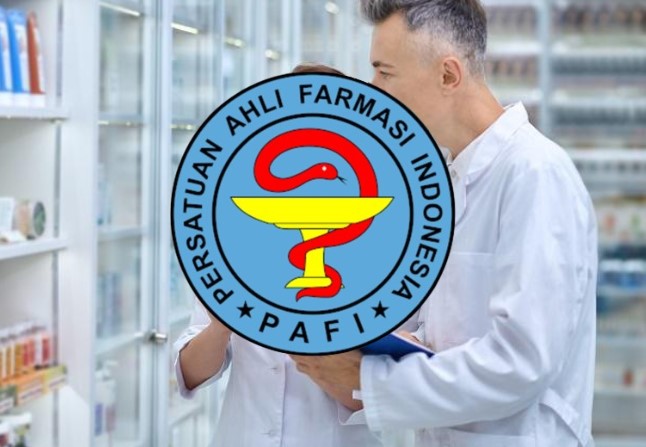
PAFI Research Contributions: Advancing Pharmacy Practice in Indonesia
The Indonesian Pharmacists Association, known locally as Persatuan Ahli Farmasi Indonesia (PAFI), has played a pivotal role in advancing pharmacy practice and healthcare in Indonesia. Through its dedicated research efforts, PAFI has contributed significantly to the body of knowledge in pharmaceutical sciences, policy development, and community health initiatives. This blog post delves into the various research contributions made by PAFI, highlighting their impact on the pharmacy profession and public health.
The Role of PAFI in Pharmaceutical Research
The Indonesian Pharmacists Association (PAFI) has established itself as a key player in pharmaceutical research within Indonesia. Through a diverse range of research initiatives, PAFI addresses critical issues affecting pharmacists and the communities they serve. The association’s research activities encompass several key areas:
Clinical Pharmacy Research
PAFI’s focus on clinical pharmacy research aims to optimize medication therapy management, ensuring patients receive effective and safe treatments. By studying drug interactions, patient adherence, and the effectiveness of various pharmaceutical interventions, PAFI provides valuable insights that enhance clinical practices and improve patient outcomes.
Pharmacoeconomics and Policy Development
In the realm of pharmacoeconomics, PAFI analyzes the economic impact of pharmaceutical products and services. This research aids policymakers and healthcare providers in making informed decisions about drug pricing, reimbursement, and resource allocation. By identifying cost-effective treatments and interventions, PAFI’s research supports the creation of sustainable healthcare policies that benefit patients and the healthcare system alike.
Drug Safety and Pharmacovigilance
Ensuring the safety of pharmaceutical products is a core concern for PAFI. The association conducts rigorous pharmacovigilance studies to monitor the safety and efficacy of medications used in Indonesia. Through these studies, PAFI identifies and mitigates adverse drug reactions, protecting patients from potential harm. The findings from these studies are shared with regulatory authorities, contributing to the enhancement of drug safety regulations.
Public Health Initiatives
PAFI’s commitment to public health is evident through its research on various community health issues. The association conducts studies on the prevalence and management of chronic diseases, vaccination coverage, and the impact of public health campaigns. By addressing these topics, PAFI’s research supports the development of targeted interventions that improve the overall health of the Indonesian population.
Through these research efforts, PAFI not only advances the field of pharmacy but also plays a crucial role in shaping healthcare policy, improving clinical practices, and enhancing public health outcomes in Indonesia. For further information, you can see here pafikotatemanggung.org.
Key Research Contributions and Publications
PAFI has a rich history of publishing its research findings in reputable scientific journals and presenting them at national and international conferences. Some of the notable research contributions by PAFI include:
- Optimizing Antiretroviral Therapy: PAFI conducted a study on the effectiveness of different antiretroviral therapy regimens for HIV patients in Indonesia. The research provided evidence-based recommendations for improving treatment outcomes and minimizing side effects.
- Cost-Effectiveness of Hypertension Management: This study evaluated the cost-effectiveness of various hypertension management strategies in Indonesia. The findings helped healthcare providers identify the most efficient approaches to managing hypertension, reducing healthcare costs, and improving patient care.
- Adverse Drug Reactions in Pediatric Patients: PAFI’s research on adverse drug reactions in pediatric patients highlighted the need for age-appropriate dosing and monitoring guidelines. The study’s recommendations have been incorporated into clinical practice to enhance the safety of pediatric pharmacotherapy.
Impact on the Pharmacy Profession
The research contributions of the Indonesian Pharmacists Association (PAFI) have significantly impacted the pharmacy profession in Indonesia, driving advancements in clinical practice, education, and professional development. Here are the key ways in which PAFI’s research has influenced the field:
Enhancing Clinical Practices
PAFI’s evidence-based research has provided pharmacists with valuable insights into medication therapy management, drug interactions, and patient adherence. This has led to the adoption of improved clinical practices that enhance patient outcomes. Pharmacists can make more informed decisions regarding treatment plans, ensuring that patients receive the most effective and safe medications.
Influencing Pharmacy Education
PAFI’s research findings play a crucial role in shaping pharmacy education in Indonesia. By integrating the latest research insights into the curriculum, pharmacy schools can ensure that students are well-prepared to meet contemporary healthcare challenges. This alignment of education with current research trends helps produce knowledgeable and competent pharmacists ready to contribute to the profession.
Supporting Policy Development
Through its research in pharmacoeconomics and drug safety, PAFI provides valuable data that supports healthcare policy development. Policymakers and healthcare providers rely on PAFI’s research to make informed decisions about drug pricing, reimbursement, and resource allocation. This contributes to the creation of sustainable healthcare policies that benefit both patients and the healthcare system.
Promoting Professional Development
PAFI is committed to the continuous professional development of pharmacists. The association offers continuing education programs and workshops based on its latest research findings. These initiatives help pharmacists stay updated on best practices, new treatments, and evolving healthcare trends. By fostering a culture of continuous learning, PAFI ensures that pharmacists are equipped with the knowledge and skills needed to provide high-quality care.
Advancing Public Health
PAFI’s research on public health issues, such as chronic disease management and vaccination coverage, has led to the development of targeted interventions that improve community health outcomes. Pharmacists, as accessible healthcare providers, play a vital role in implementing these interventions and educating the public. This enhances the role of pharmacists in public health initiatives and reinforces their importance in the healthcare system.
Strengthening the Professional Community
PAFI’s efforts in research and advocacy help build a strong professional community of pharmacists in Indonesia. By addressing common challenges, sharing best practices, and promoting collaboration, PAFI fosters a sense of unity and professional pride among pharmacists. This collective strength enables the profession to advocate more effectively for its interests and for the improvement of healthcare standards.
Encouraging Innovation
PAFI’s commitment to research encourages innovation within the pharmacy profession. By exploring new treatment modalities, pharmaceutical technologies, and healthcare delivery models, PAFI inspires pharmacists to think creatively and adopt innovative approaches to patient care. This culture of innovation contributes to the ongoing evolution of the profession, ensuring its relevance and responsiveness to future healthcare needs.
In summary, PAFI’s research contributions have had a profound and multifaceted impact on the pharmacy profession in Indonesia. By enhancing clinical practices, shaping education, supporting policy development, promoting professional growth, advancing public health, strengthening the professional community, and encouraging innovation, PAFI continues to play a pivotal role in advancing the field of pharmacy and improving healthcare outcomes.
Conclusion
The Indonesian Pharmacists Association (PAFI) has made significant research contributions that have advanced pharmacy practice and public health in Indonesia. Through its commitment to clinical pharmacy, pharmacoeconomics, drug safety, and public health, PAFI has provided valuable insights that inform policy development, improve patient outcomes, and enhance the overall healthcare system. As PAFI continues to lead in pharmaceutical research, its efforts will undoubtedly continue to benefit pharmacists, patients, and the broader healthcare community.


